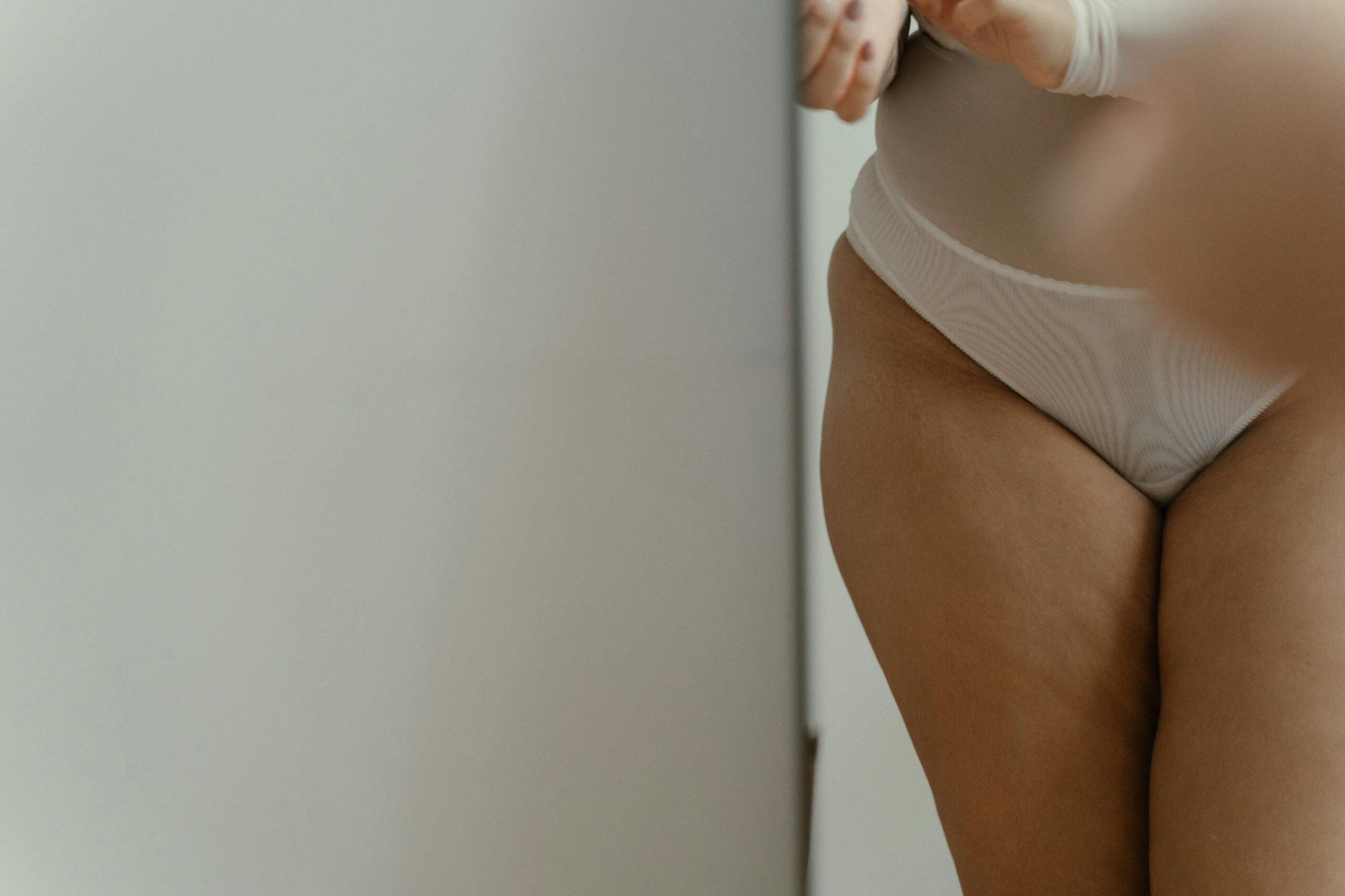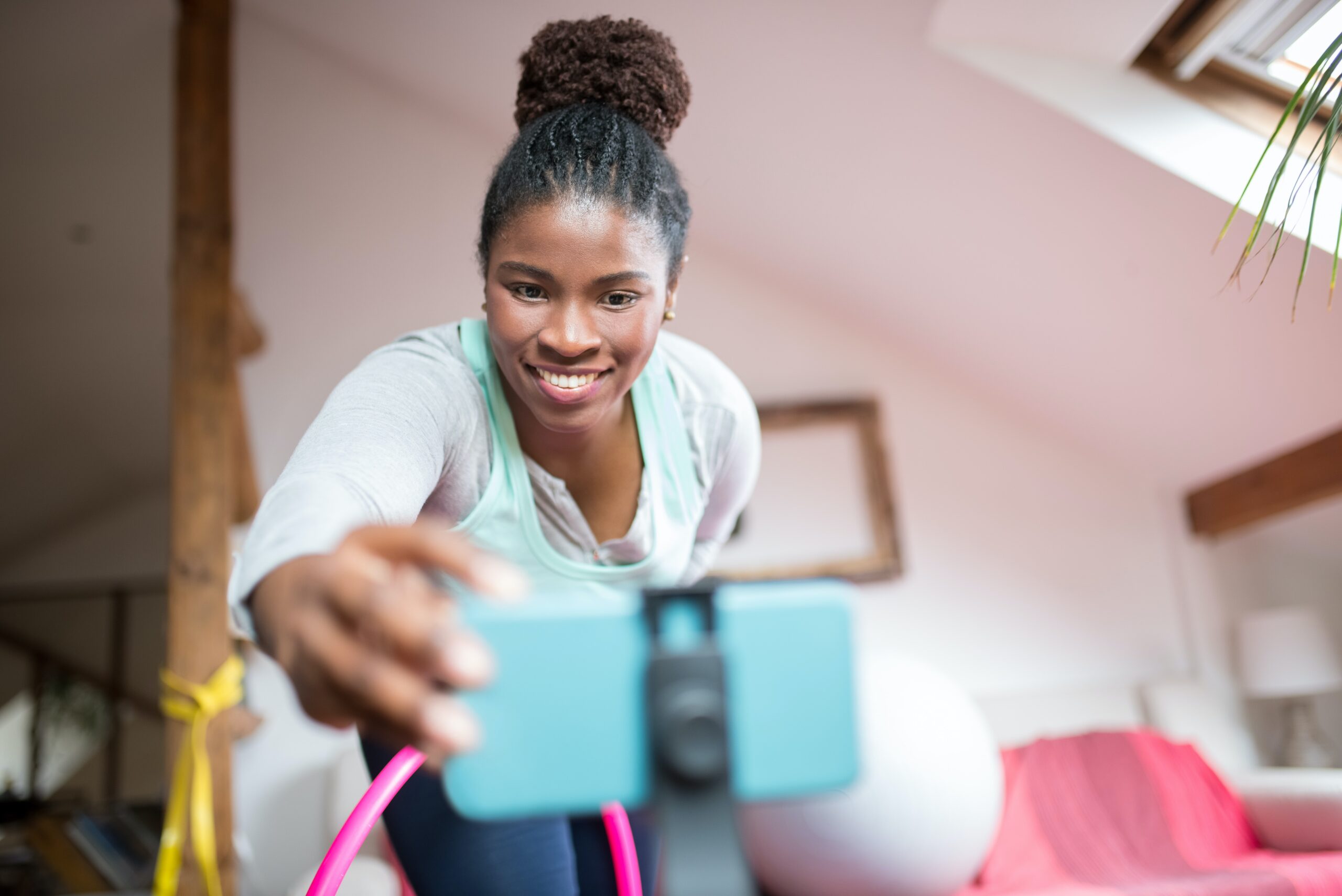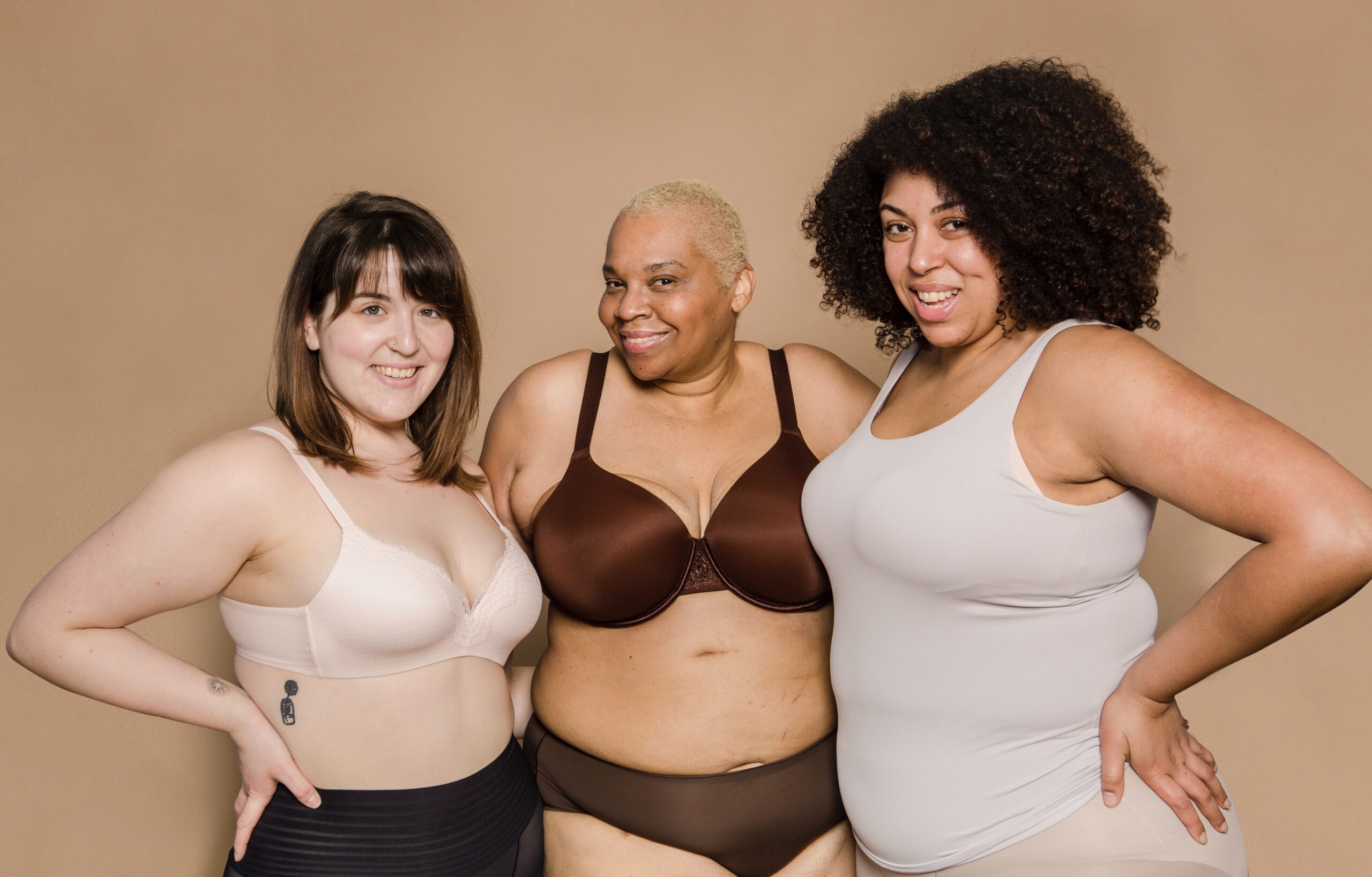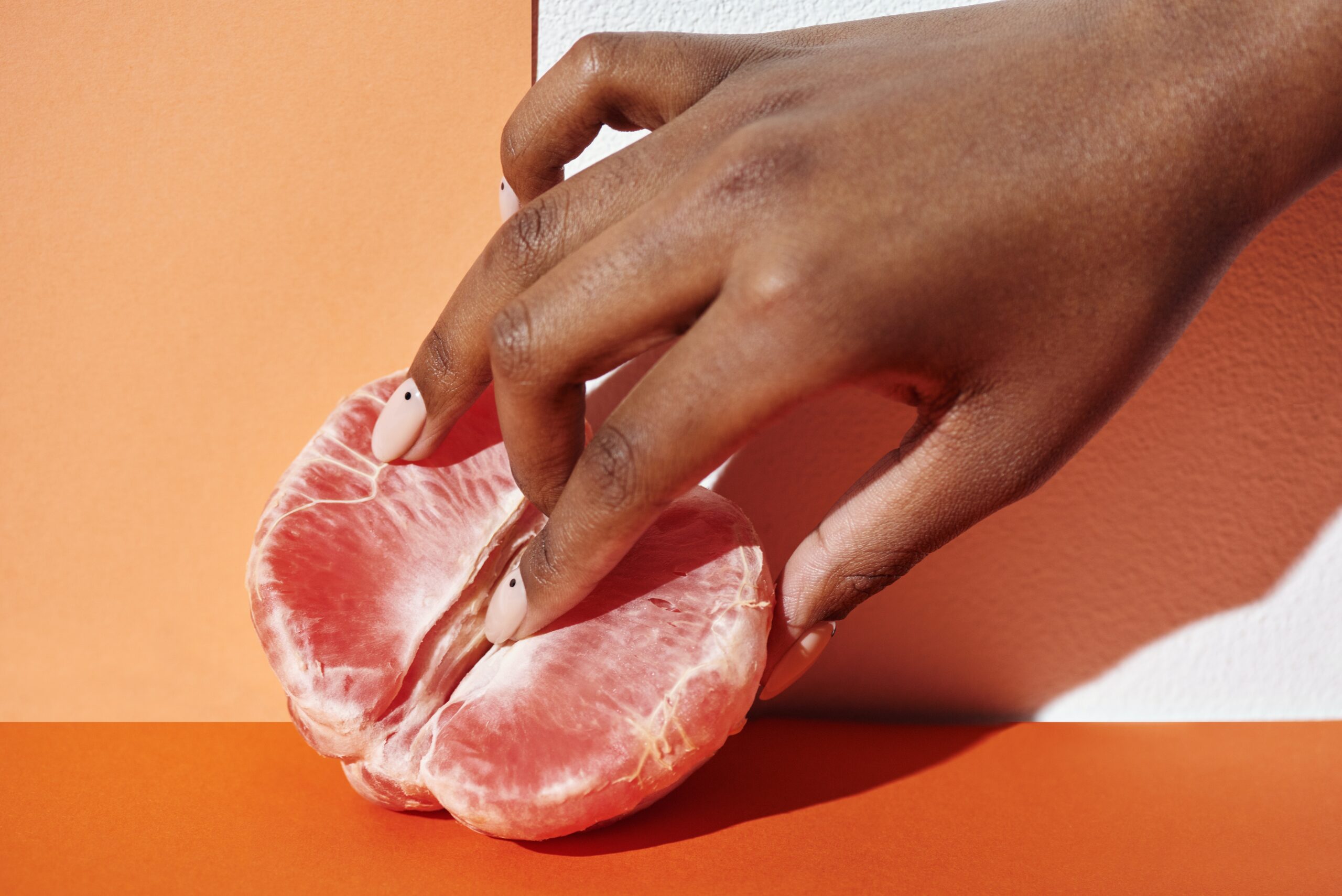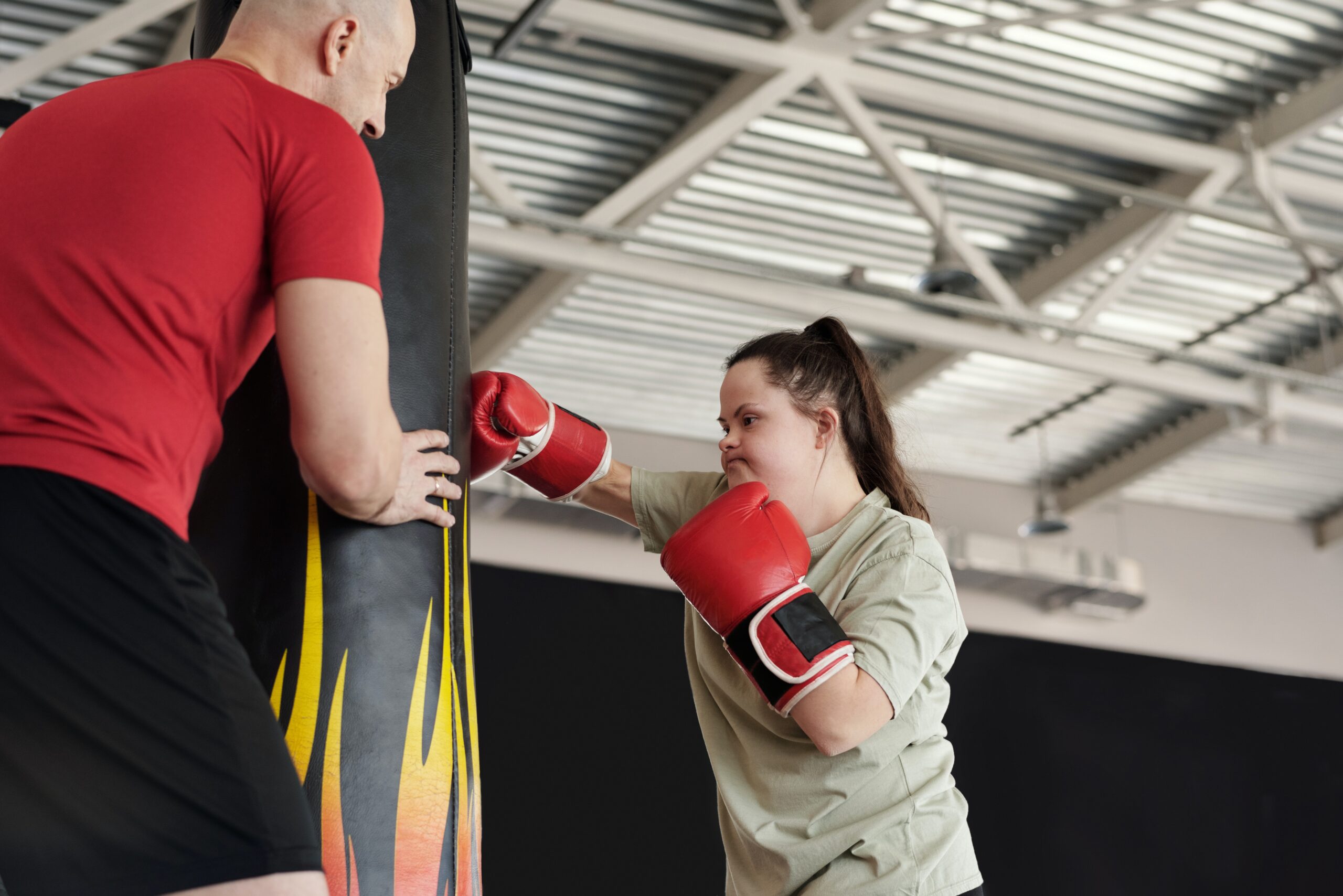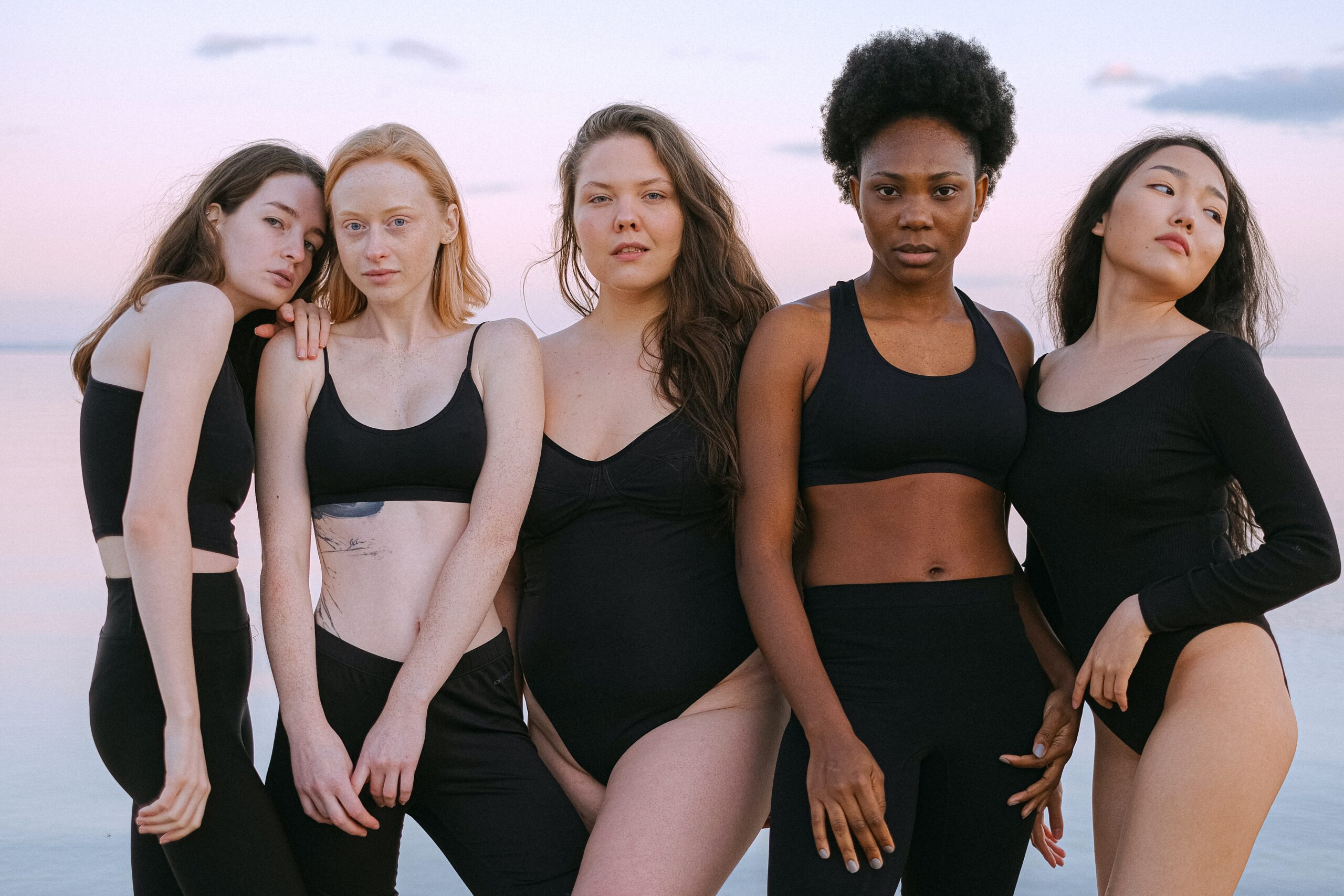If there is one thing that transcends all boundaries across the world and unites women everywhere, it is our struggle for body acceptance and how we view our body image. When we look at the mirror, there is no doubt the majority of us, no matter what culture we are from, how much money we have, who our families are, our financial status etc, have said to ourselves “urgh! I hate the way I look today!”
Instead of hiding away from this epidemic, one Lithuanian photographer has decided to face this issue head on and capture it on camera.
Neringa Rekašiūtė, together with journalist Beata Tiškevič Hasanova and communications specialist Modesta Kairytė, created a series of black and white images of various women looking at themselves in the mirror for a project called “We.Women”.
“Our media is full of images, attempting to construct what a perfect woman should look like,” Neringa said about the images. “Sexualization and standardization of a female body in the media have direct negative consequences in the society. Objectivization of body encourages the society to focus on physical appearance of women instead of embracing their personality and inner feelings. As a consequence, about half of women are dissatisfied with their bodies, which leads to a number of psychological and health problems.”
What the project aims to do is get women to look at themselves and not find their worth through outside sources. Although that in itself is hard to do.
“Every day in the streets, stands, display cabinets, online, on television and in the press, we see the beauty of a woman standardized polished samples. It’s sort of mass hypnosis,” she told Italian press Kulturopolis.
The photographs were displayed in an exhibition where the public was invited to take a look at the photographs and create their own discussions about body image.
This project is similar to what Dove have been trying to do in terms of changing the way women talk about their bodies. In fact, Dove even contacted Neringa about her project with the aim to collaborate, but she declined. Unlike Dove, they are not trying to mass market a product, they want the images to relate to each woman personally.
Neringa said this project was aimed mostly at Western women, and cited the recent study which showed Muslim women who wear hijabs statistically have higher self esteem than others. On the other hand, Iran has been named the nose job capital of the world, because when you have your hair pulled back in a hijab, the nose becomes more prominent. What she has discovered in her research is that body image is a universal thing, as we mentioned at the beginning of this post. Whether you are wearing fully-covered clothing, or a string bikini, the issues still lurk.
Neringa issued a call-out via her Facebook page to see if any women were interested in taking part in the series, and ended up with 12 beautiful black and white images of women posing in their underwear in front of a mirror. Each image was accompanied by a story from the model.
The issues shared by the women include anorexia, bulimia, breast cancer, vitiligo, depression, fat-shaming, and skinny-shaming as well as mental health perils and even cases of domestic abuse.
We.Women was designed not just to display body image worries, but also to unite women in our common struggle. Aside from asking women to confront themselves, Neringa understands that a woman’s body has become a cultural battle ground.
“The women’s body-it is like a permanent place for fighting between tradition and modernity, between religious and secular.”
Beata even went one step further to say a woman’s worth is separate from her physical being.
“We are not our body, because the body only gives form, not content.”
Back in November actress Keira Knightley posed topless for Interview magazine, in a protest against the recent spate of nude female celeb photos leaked on the internet, but also to protest the way women’s bodies are manipulated in the media.
“I think women’s bodies are a battleground and photography is partly to blame. Our society is so photographic now, it becomes more difficult to see all of those different varieties of shape,” the 29-year-old told the Times about the shoot.
“I’ve had my body manipulated so many different times for so many different reasons, whether it’s paparazzi photographers or for film posters. That [shoot] was one of the ones where I said: ‘OK, I’m fine doing the topless shot so long as you don’t make them any bigger or retouch.’ Because it does feel important to say it really doesn’t matter what shape you are.”
Women’s bodies being a battleground has not exactly stopped either. Just look at how they are treated in advertising. The Victoria’s Secret “perfect body” campaign blunder is a great example. Or the recent Alexander Wang denim ads showing a woman naked touching herself. Oh and the new sexist ads for milk portraying women as pin-up girls, setting our gender back around 50 years. Yikes! It’s hard to catch a break, but the good news is that because of the internet, everyday people have an amplified voice to speak up about injustices and take a stand for something positive.
We love what Neringa, Beata and Modesta have created because it shows what happens when women come together to encourage one another. It’s a powerful thing!
“We hope by growing this project and sharing the images and stories, we can inspire women to accept and love their bodies as they are: with all their inner and outer scars,” said Neringa. Amen to that.
























